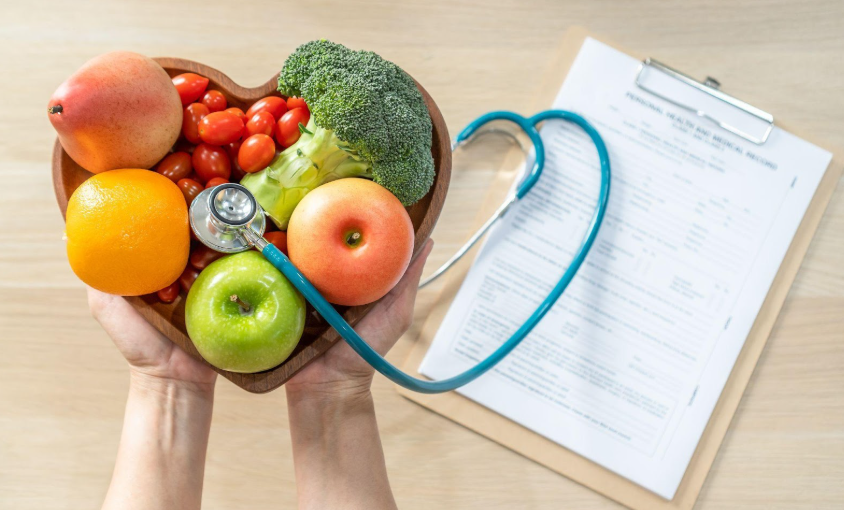Healthy Summer Eating with Cancer-Fighting Foods for Warm-Weather Meals
Healthy Summer Eating with Cancer-Fighting Foods for Warm-Weather Meals

Summer offers an ideal season to reinforce cancer prevention and recovery strategies through nutrition. With an abundance of fresh produce and lighter eating habits, warm-weather months present a unique opportunity to support your body with food choices that reduce inflammation, boost immunity, and protect cellular health.
By emphasizing evidence-based dietary principles, you can make informed nutritional decisions that work alongside clinical care and improve long-term outcomes.
How Seasonal Nutrition Strengthens Your Body’s Defense Systems
Cancer-fighting foods do more than support basic health—they actively assist your body in managing oxidative stress, repairing damaged cells, and modulating the immune system. During summer, when appetite often shifts toward lighter fare, it's easier to integrate nutrient-rich fruits, vegetables, and plant-based staples into your routine.
Many integrative care models encourage dietary counseling as a foundational aspect of cancer prevention and survivorship. With the guidance of registered dietitians and personalized nutritional planning, patients can tailor their diets to meet clinical goals and improve treatment tolerance—all while enjoying the fresh flavors of the season.
The Benefits of Summer Produce Phytochemicals
Summer fruits and vegetables are naturally rich in phytochemicals, which are protective plant compounds that have been shown to lower the risk of some types of cancer. These compounds work by neutralizing free radicals, modulating detoxification enzymes, and interfering with cancer cell signaling pathways.
Consistently including sufficient nutrients supports your body's intrinsic ability to maintain balance and cellular health.
Key Summer Foods That Help Fight Cancer Naturally
By making smart, plant-focused choices, you give your body the nutritional tools to stay resilient and lower your long-term cancer risk.
Berries and Cherries
Blueberries, raspberries, and strawberries are packed with fiber, vitamin C, and anthocyanins—nutrients that reduce inflammation and oxidative damage. They also contain melatonin and quercetin, which support cell repair and regulate stress-related hormones. These fruits are beneficial for vascular and brain health and can be enjoyed fresh, blended into smoothies, or frozen for year-round use.
Tomatoes, Watermelon, and Red Bell Peppers
Tomatoes and watermelon are rich in lycopene, a compound linked to lower risks of prostate, stomach, and breast cancers. Red bell peppers add both lycopene and beta-carotene, strengthening antioxidant and immune defenses. To improve lycopene absorption, pair tomatoes with olive oil or cook them lightly. Add peppers, raw or grilled, to meals for color and protection.
Carrots, Sweet Potatoes, and Apricots
Orange-colored produce like carrots and sweet potatoes is high in beta-carotene, which helps prevent DNA damage. Apricots offer similar benefits with added polyphenols that combat oxidative stress. Include them as grated carrot salads, roasted sides, or dried snacks to support both skin and cell health in the summer.
Cruciferous Vegetables
Broccoli, cauliflower, Brussels sprouts, and kale contain sulforaphane and glucosinolates, which activate detox enzymes and help block hormone-related cancer pathways. These are especially valuable for hormone-sensitive cancers. Eat them raw in slaws or lightly steamed to retain their protective compounds and add texture to meals.
Leafy Greens
Dark greens like arugula, spinach, and Swiss chard provide folate, chlorophyll, and magnesium—nutrients vital for DNA repair and immune support. They help limit abnormal cell growth and are easy to use in smoothies, salads, or sautés with olive oil to boost absorption.
Allium Vegetables
Garlic, onions, scallions, and leeks contain organosulfur compounds that lower inflammation and support liver detox. They may also inhibit angiogenesis, the blood supply growth that supports tumors. Use them freely in stir-fries, marinades, or sauces to enhance both flavor and protection.
Herbs and Spices
Fresh herbs like rosemary, basil, parsley, and cilantro offer polyphenols that interfere with cancer cell development. Turmeric and ginger contain curcumin and gingerol—anti-inflammatory agents with antitumor properties. Add herbs to teas, salads, or dressings, and combine turmeric with black pepper and healthy fats for better absorption.
Whole Grains and Beans
Farro, brown rice, bulgur, lentils, and chickpeas provide fiber and resistant starch that feed good gut bacteria, regulate blood sugar, and support hormone balance—all important in cancer prevention. Easy summer ideas include:
- Lentil and quinoa salad with grilled vegetables.
- Chickpea hummus with raw veggie sticks.
- Oatmeal with berries and flaxseed.
Cucumbers, Zucchini, and Melons
Cucumbers, squash, cantaloupe, and honeydew hydrate the body and offer antioxidants like cucurbitacins and carotenoids. These reduce inflammation and help flush toxins. Use them in cold soups, infused water, or fruit salads for cooling, refreshing protection.
Corn and Green Beans
Corn contains ferulic acid, which may help prevent colon and liver cancers. Green beans are rich in chlorophyll and flavonoids that fight oxidative damage. Both are high in fiber and easy to enjoy grilled, steamed, or sautéed as summer side dishes.
Hydration and Electrolyte Balance for Systemic Health
Proper hydration supports every system in your body, from digestion to circulation. It also plays an indirect but essential role in cancer care by aiding in the elimination of waste, reducing treatment-related fatigue, and improving nutrient transport. Summer hydration strategies should include:
- Water-Rich Foods: Cucumbers, melons, citrus, and leafy greens
- Infused Waters: Add mint, lemon, or berries for flavor and added antioxidants
- Herbal Teas: Choose green tea or ginger tea to reduce inflammation and support metabolism
Avoid sugary sodas and energy drinks, which can promote inflammation and insulin resistance—two factors that may affect cancer progression.
Comprehensive Care Teams Support Personalized Nutrition Planning
Cancer care is most effective when nutritional planning is fully integrated into the overall treatment strategy. Multidisciplinary care teams often include registered dietitians and nutrition specialists who assess your unique medical profile, treatment status, and lifestyle to create individualized meal plans.
This support is especially valuable during survivorship, when long-term dietary habits can influence recurrence risk and overall vitality. Opting for these nutrition services can help you:
- Manage side effects like appetite loss, nausea, or fatigue.
- Meet increased protein and calorie needs during treatment.
- Supports immune recovery and maintains a healthy weight.
- Make evidence-based food choices aligned with your care goals.
Your summer plate can be a powerful ally in your cancer journey. At
LA Cancer Network, our comprehensive patient-centered approach unites oncologists, dietitians, and integrative specialists to deliver advanced care with personalized, evidence-based nutrition support.
Schedule your consultation
for a cancer-focused meal plan today!






















